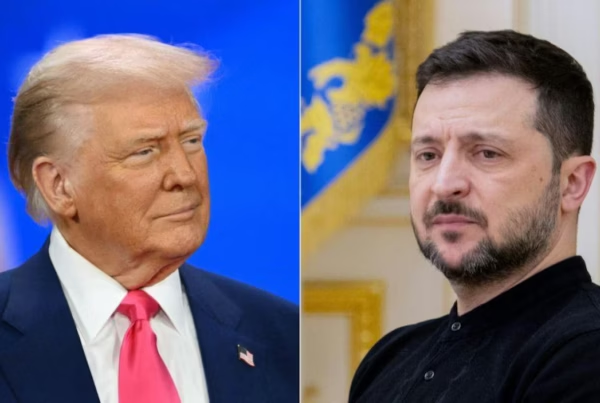By Jasdeep Singh Hundal
Small states in a very big world
Denmark, Singapore, Qatar play seemingly small roles in the theater of global politics, and it would be unsurprising if awareness of these states is sparse and limited to the oil fields of Qatar, the pristine Danish social security system, and a Singapore abubble with cultural diversity. Drowned by the rumbling tremors of Chinese-American competition and the shifts of the migratory plates in large Western European and Middle Eastern countries, it is easy to forget that small can be beautiful, and even easier to forget that small exists. But Denmark, Singapore, Qatar and other small states have proven otherwise—that as much as size matters, it is certainly not the end-all, and that many a time, small is beautiful.
But what exactly entails being small? The definition of small states appears as elusive as the ability to identify them on global maps; try spotting Jamaica or tracing the outline of Estonia. There is no one widely-accepted standard. Typically, population size is the most commonly used measure, but once again, there rests a sore absence of any agreement on the number. The Commonwealth, for instance, uses an upper limit of 1.5 million in population to distinguish small states, but David Vital, a scholar of political science, crafts a more comprehensive definition, deeming small states to be more economically developed countries that have populations of 10-15 million or less economically developed countries with populations in the range of 20-30 million. Nevertheless, relying solely on population size is hardly a satisfactory answer to the definitional dilemma. The cut-off seems arbitrary, and the concept of size can extend beyond the objective population. In fact, Baldur Thorhallsson—a professor of Political Science at the University of Iceland, with his research focusing on small states—provides a composite framework that broadens the understanding of size to include elements of sovereignty size (the degree to which a state controls domestic affairs), economic size (GDP and market size) and even, perceptual size (how a state is perceived by internal or external actors). Even then, the definition of small states is one that evades, calling for a reliance on some sort of an intuition when imagining them.
Yet, interestingly enough, the permeating notion common in these different models seems to point to a shortage of capabilities to determine power and influence, and by extension, the problematic association of small with weak.
It would be foolish to ignore that being a small state comes with certain challenges. The lack of ability to influence global affairs to the same extent as larger counterparts leaves small states more vulnerable to changes in the system. The notion of survival becomes a recurring theme in the diction of the foreign policy of small states, with key risks often a product of their being subject to the vicissitudes of the international order.
This list of threats facing small states is nothing short of daunting. In the realm of security concerns, Pacific island states are a target for transnational crime, notably human and drug trafficking. The island states are also economically vulnerable to being left out of global trade links, a similar predicament felt by the geographically isolated people of Seychelles, positioned 1,500 km from any other state. Brain drain is another pandemic familiar to small states, with 81% of tertiary-educated Haitians and 85% of their Jamaican counterparts emigrating to greener pastures. These difficulties, as specific as they can be to the different contexts—the nightmares of Denmark and Singapore could hardly be more different—all have an intrinsic link to the vagaries of the global changes.
Unsurprisingly, the most obvious solutions tend to be rooted in an involvement with the very source of these threats, the international order. Most smaller states indeed develop a close relationship with their larger neighbours. Recalling Thorhallsson would bring to light his shelter theory, in which small states align politically, economically and culturally to larger counterparts. In the case of the Nordic countries, political shelter comes from NATO, with enhanced contingency planning in the event of attacks, with Sweden and Finland signing up for closer territorial defense cooperation in 2014. Economic shelter is found in the single market of the EU, albeit to differing degrees; the more agricultural and industrial economies of Denmark and Sweden are drawn by a greater appeal of the Union as compared to Norway and Iceland, which profit from natural resources. A distinction to be made is that shelter is inherently different from dependence, with small states remaining capable of supporting themselves without their larger neighbour. Small states have always diversified their cooperation with larger states, preventing an absolute dependence on any one. Singapore plays a classic act of such a masterful balance, seeing its prosperity as being linked to the development of China as much as believing in the maintenance of an American presence in the Pacific.
More so than that, small states are capable of developing their own influence. Soft power, the act of swaying international outcomes without threatening military invasions and crippling economic sanctions, seems to be just the tool for small states. This form of influence is manifest in different manners, although these efforts expand the virtual space beyond glaring physical and geographic limitations. Serving as economic hubs hosting capital flows, the likes of Liechtenstein, Panama, Qatar, and Singapore have become influential in international finances. The same goes for small states that have established a reputation as models of good governance, a prominent example being Switzerland, renowned for its political neutrality. A third but equally notable measure is the playing of diplomatic mediation roles, which small states seem to be adept at with their inherent desire to be more peaceful, demonstrated by Finland and Costa Rica. An ensemble of these strategies, and others that have not been discussed, is usually employed, bringing Switzerland, Sweden, Denmark, Norway and Singapore to the top 20 of the Soft Power 30 ranking in 2017.
Where individual states remain vulnerable, there are cooperative efforts to boost their international leverage. Small states stand to gain from the creation of international norms and legal frameworks to regulate the interactions of states big and small, reducing the unpredictability of state actions and hence, the vulnerability of these states. The limits of international law have often been pointed out with the United States, Russia, and China hardly appearing as models of adherence to its principles. However, it is also worth pointing out the achievements of international law. The United States has often been called out for its blatant disregard of international law. In Nicaragua v. United States, while the order on reparations has not been fulfilled, the United States complied with the court order to stop mining Nicaraguan harbors. In his How Nations Behave, Louis Henkin points out that the trend of states increasingly observing all elements of international law as these obligations are seen to benefit their state interest with the creation of friendly and predictable state relations. Naturally, international law is becoming more and more an imperative of small states.
In addition to the rule of law, the coalescence of small states allows for their greater weight in the international sphere. Caribbean states, together with other small island states, have created the Alliance of Small Island States (AOSIS), representing 20% of the UN membership. The AOSIS, an alliance of countries especially endangered by the unpredictabilities of the climate change, has driven international discourse on climate change, putting forward the first draft text in the Kyoto Protocol in as early as 1994 and demanding establishment of an international mechanism on loss and damages stressed by the wreckage of Typhoon Haiyan in 2013. The coming together of small states has been a long employed strategy, an amplifier of otherwise hushed voices.
Lest a false mirage be painted, it is worth noting that for every Denmark and Singapore, there remain other small states that have struggled to manage their challenges, and even those who seem to be at the top of the world, tremors from the international theatre are not unthinkable. Recently, Qatar had felt the heat of being a small state. Larger neighbours Saudi Arabia, the United Arab Emirates, Bahrain and Egypt had cut off diplomatic ties, quoting alleged support for terrorism as the main reason. The imposition of trade and travel bans was a scarring reminder of the vulnerabilities of small states that still remain. A common interpretation of the situation is that Qatar began to act out of line, and that small states ought to know their place.
New questions are being raised: Should small states then act just as small states would? Should they keep to their places in the international order, subject to the whims and fancies of larger players? Certainly not. But neither should the asymmetry of powers be forgotten. The South China Sea conflict very much so reiterates the relevance of size, pointing to the ability of larger states being able to assert dominance over smaller, and seemingly weaker neighbours.
Small states need to continue being bold, while remaining aware of their limitations. Size remains an important consideration in the international sphere, but the understandings of size have broadened, bringing us back to Thorhallsson’s more holistic assessment of size. Development of soft power, rule of international law and cooperation seem to be the best shots small states have to grow their virtual space, allowing for their continued participation in the global theatre. After all, as Denmark, Singapore and Qatar have shown us, small can be beautiful.
Photo Credit: E-Harmony, UK
Other posts that may interest you:
- The Trouble with ‘Ecocide’
- Carbon dioxide removal – hit or miss?
- Local Victories for Turkish Opposition — A Sign of Hope?
- Are France and Japan a Mismatch Made in Heaven?
- A Reflection on Dark Tourism
Discover more from The Sundial Press
Subscribe to get the latest posts sent to your email.





